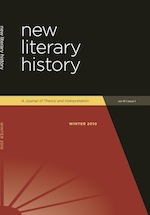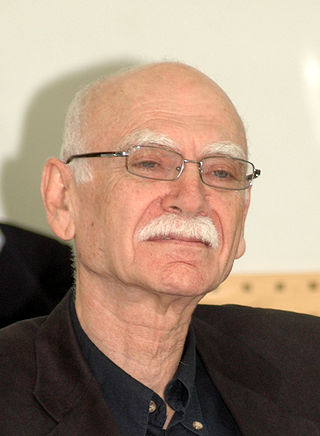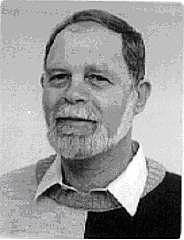Related Research Articles
Aesthetics is the branch of philosophy concerned with the nature of beauty and the nature of taste; and functions as the philosophy of art. Aesthetics examines the philosophy of aesthetic value, which is determined by critical judgements of artistic taste; thus, the function of aesthetics is the "critical reflection on art, culture and nature".
Genre is any style or form of communication in any mode with socially agreed-upon conventions developed over time. In popular usage, it normally describes a category of literature, music, or other forms of art or entertainment, based on some set of stylistic criteria. Often, works fit into multiple genres by way of borrowing and recombining these conventions. Stand-alone texts, works, or pieces of communication may have individual styles, but genres are amalgams of these texts based on agreed-upon or socially inferred conventions. Some genres may have rigid, strictly adhered-to guidelines, while others may show great flexibility.

Literary theory is the systematic study of the nature of literature and of the methods for literary analysis. Since the 19th century, literary scholarship includes literary theory and considerations of intellectual history, moral philosophy, social philosophy, and interdisciplinary themes relevant to how people interpret meaning. In the humanities in modern academia, the latter style of literary scholarship is an offshoot of post-structuralism. Consequently, the word theory became an umbrella term for scholarly approaches to reading texts, some of which are informed by strands of semiotics, cultural studies, philosophy of language, and continental philosophy.

A genre of arts criticism, literary criticism or literary studies is the study, evaluation, and interpretation of literature. Modern literary criticism is often influenced by literary theory, which is the philosophical analysis of literature's goals and methods. Although the two activities are closely related, literary critics are not always, and have not always been, theorists.
Stylistics, a branch of applied linguistics, is the study and interpretation of texts of all types, but particularly literary texts, and/or spoken language in regard to their linguistic and tonal style, where style is the particular variety of language used by different individuals and/or in different situations or settings. For example, the vernacular, or everyday language may be used among casual friends, whereas more formal language, with respect to grammar, pronunciation or accent, and lexicon or choice of words, is often used in a cover letter and résumé and while speaking during a job interview.
Russian formalism was a school of literary theory in Russia from the 1910s to the 1930s. It includes the work of a number of highly influential Russian and Soviet scholars such as Viktor Shklovsky, Yuri Tynianov, Vladimir Propp, Boris Eichenbaum, Roman Jakobson, Boris Tomashevsky, Grigory Gukovsky who revolutionised literary criticism between 1914 and the 1930s by establishing the specificity and autonomy of poetic language and literature. Russian formalism exerted a major influence on thinkers like Mikhail Bakhtin and Juri Lotman, and on structuralism as a whole. The movement's members had a relevant influence on modern literary criticism, as it developed in the structuralist and post-structuralist periods. Under Stalin it became a pejorative term for elitist art.
The Chicago School of literary criticism was a form of criticism of English literature begun at the University of Chicago in the 1930s, which lasted until the 1950s. It was also called Neo-Aristotelianism, due to its strong emphasis on Aristotle's concepts of plot, character and genre. It was partly a reaction to New Criticism, a then highly popular form of literary criticism, which the Chicago critics accused of being too subjective and placing too much importance on irony and figurative language. They aimed instead for total objectivity and a strong classical basis of evidence for criticism. The New Critics regarded the language and poetic diction as most important, but the Chicago School considered such things merely the building material of poetry. Like Aristotle, they valued the structure or form of a literary work as a whole, rather than the complexities of the language. Despite this, the Chicago School is considered by some to be a part of the New Criticism movement.
Narratology is the study of narrative and narrative structure and the ways that these affect human perception. The term is an anglicisation of French narratologie, coined by Tzvetan Todorov. Its theoretical lineage is traceable to Aristotle (Poetics) but modern narratology is agreed to have begun with the Russian formalists, particularly Vladimir Propp, and Mikhail Bakhtin's theories of heteroglossia, dialogism, and the chronotope first presented in The Dialogic Imagination (1975).
Jonathan Culler is an American literary critic. He was Class of 1916 Professor of English and Comparative Literature at Cornell University. His published works are in the fields of structuralism, literary theory and literary criticism.
Cognitive poetics is a school of literary criticism that applies the principles of cognitive science, particularly cognitive psychology, to the interpretation of literary texts. It has ties to reader-response criticism, and also has a grounding in modern principles of cognitive linguistics. The research and focus on cognitive poetics paves way for psychological, sociocultural and indeed linguistic dimensions to develop in relation to stylistics.

New Literary History: A Journal of Theory & Interpretation is a quarterly academic journal published by Johns Hopkins University Press. It focuses on the history and theory of literature, and key questions of interpretation. The journal has received six awards from the Council of Editors of Learned Journals.
Darwinian literary studies is a branch of literary criticism that studies literature in the context of evolution by means of natural selection, including gene-culture coevolution. It represents an emerging trend of neo-Darwinian thought in intellectual disciplines beyond those traditionally considered as evolutionary biology: evolutionary psychology, evolutionary anthropology, behavioral ecology, evolutionary developmental psychology, cognitive psychology, affective neuroscience, behavioural genetics, evolutionary epistemology, and other such disciplines.
Brian G. McHale is a US academic and literary theorist who writes on a range of fiction and poetics, mainly relating to postmodernism and narrative theory. He is currently Distinguished Humanities Professor of English at Ohio State University. His area of expertise is Twentieth-Century British and American Literature.

Itamar Even-Zohar is an Israeli culture researcher and professor at Tel Aviv University. Even-Zohar is a pioneer of polysystem theory and the theory of cultural repertoires.
James Phelan is an American writer and literary scholar of narratology. He is a third-generation Neo-Aristotelian literary critic of the Chicago School whose work builds on and refines the work of Wayne C. Booth, with a focus on the rhetorical aspects of narrative. He is Distinguished University Professor of English at the Ohio State University.

Reuven Tsur was a professor emeritus of Hebrew literature and literary theory at Tel Aviv University. He was born in Oradea (Nagyvárad), Romania. His mother tongue was Hungarian. Tsur died on September 6, 2021, at the age of 88.
Robyn R. Warhol is an American literary scholar, associated in particular with feminist narrative theory, of which she is considered one of the originators. She is currently an Arts and Humanities Distinguished Professor of English at the Ohio State University and a core faculty member of Project Narrative. Warhol received her BA in English from Pomona College in 1977 and her PhD in English and American Literature from Stanford University in 1982, where she studied with Thomas Moser, George Dekker, and Ian Watt.

Gideon Toury was an Israeli translation scholar and professor of Poetics, Comparative Literature and Translation Studies at Tel Aviv University, where he held the M. Bernstein Chair of Translation Theory. Gideon Toury was a pioneer of Descriptive Translation Studies.

Roman Katsman is an Israeli professor and researcher of Hebrew and Russian literature. He is Full Professor of the Department of Literature of the Jewish People in Bar-Ilan University.
In film studies, historical poetics is a scholarly approach to studying film, which David Bordwell outlined in his book Making Meaning (1989). Poetics studies the text itself rather than its production, reception or cultural significance and it can therefore be seen as a logical first step - though expressly not the last step - in terms of understanding how a narrative text works.
References
- ↑ Gorman, David (2011) "The Future of Literary Study: An Experiment in Guesswork." Modern Language Quarterly 72:1, p. 5.
- ↑ McHale, Brian (1994) "Whatever Happened to Descriptive Poetics?", The Point of Theory: Practices of Cultural Analysis (red. Mieke Bal & Inge E. Boer). Amsterdam: Amsterdam University Press, p. 59
- ↑ Mintz, Alan (1984) "On the Tel Aviv School of Poetics" i Prooftexts , Vol. 4, No. 3
- ↑ Margolin, Uni (2007) "Response" i Journal of Literary Theory , Vol 1, No 1
